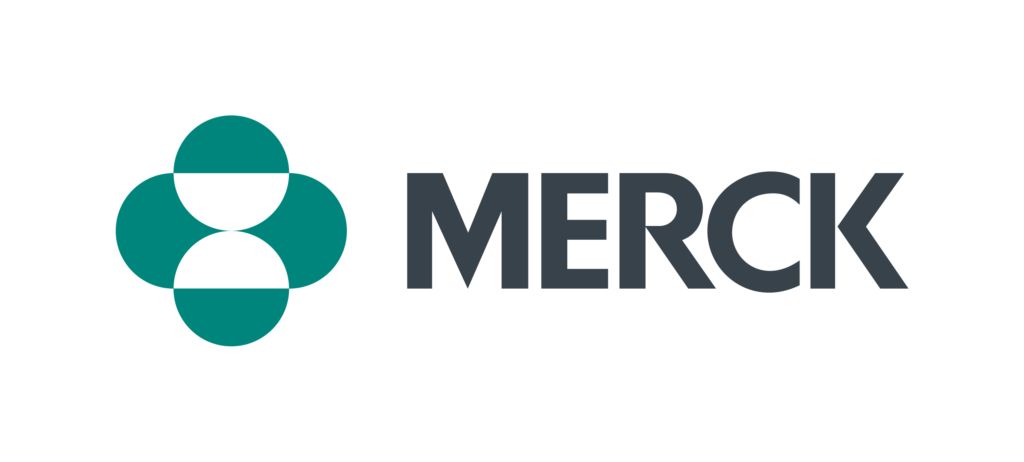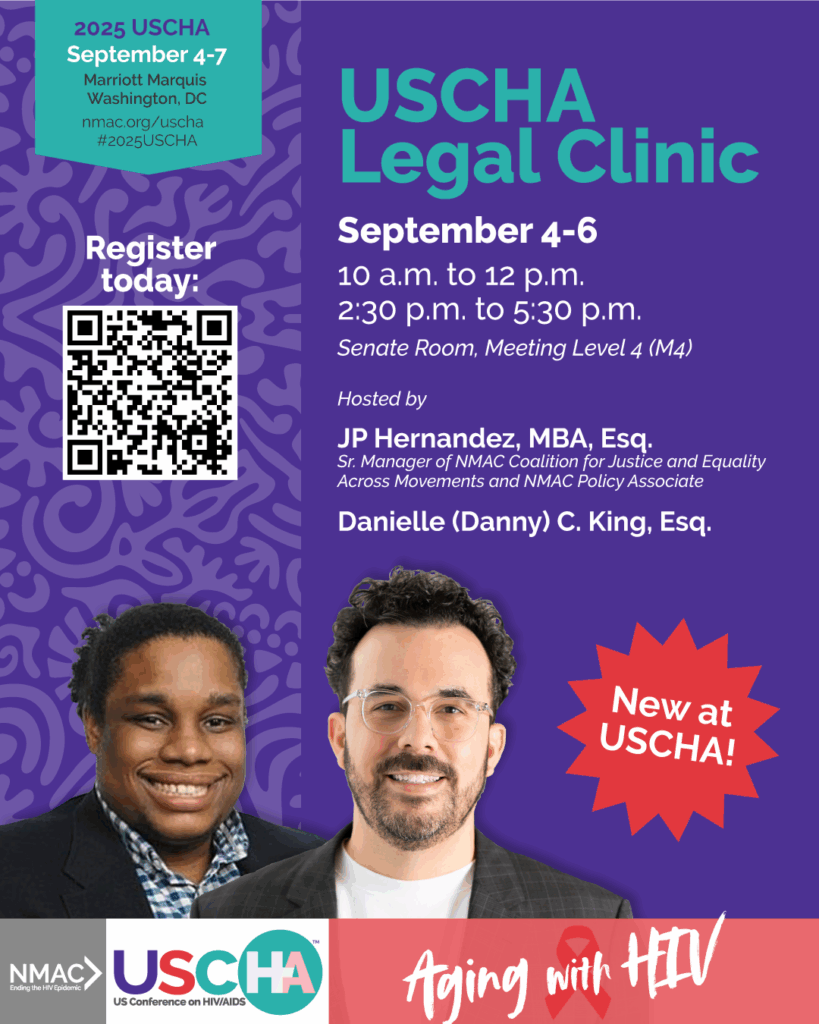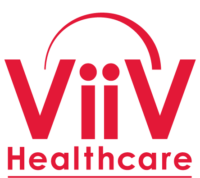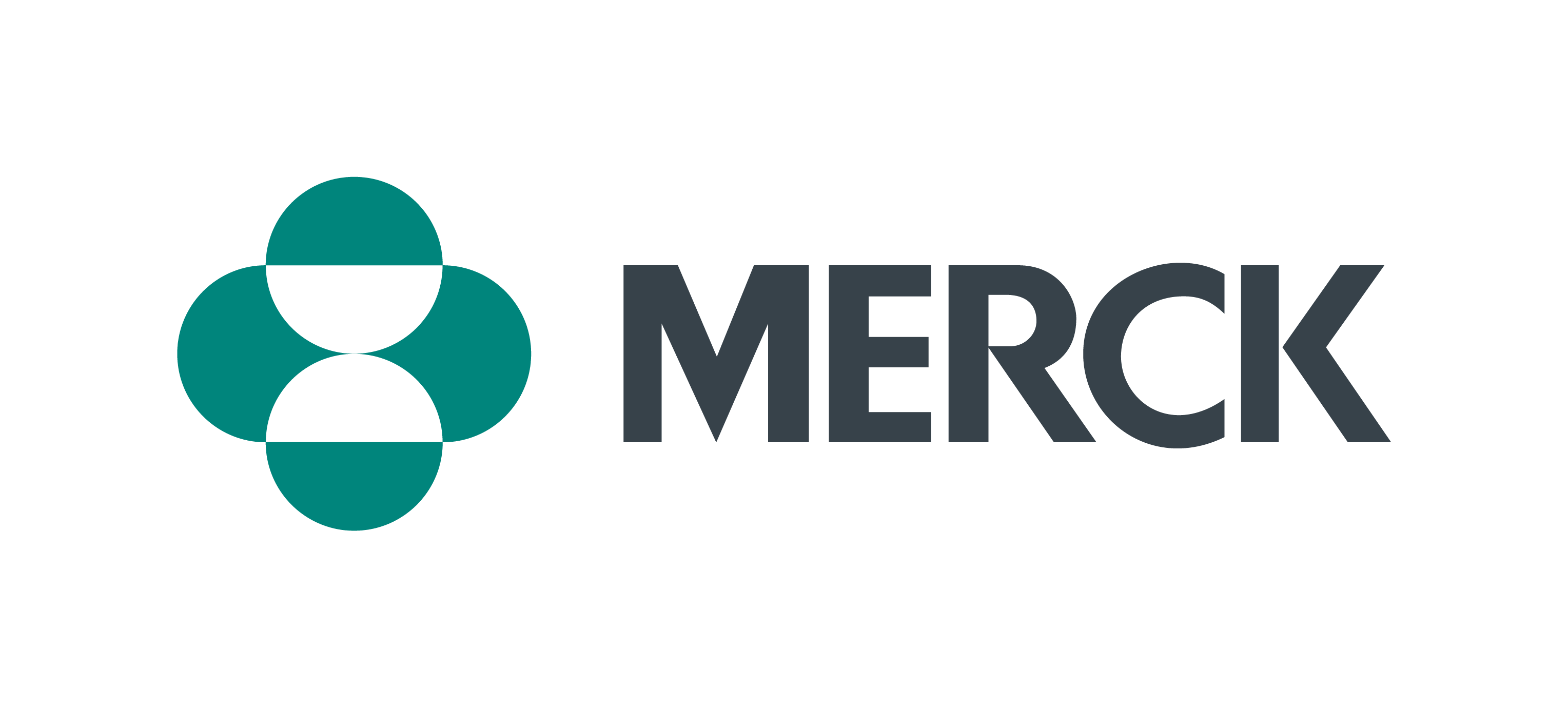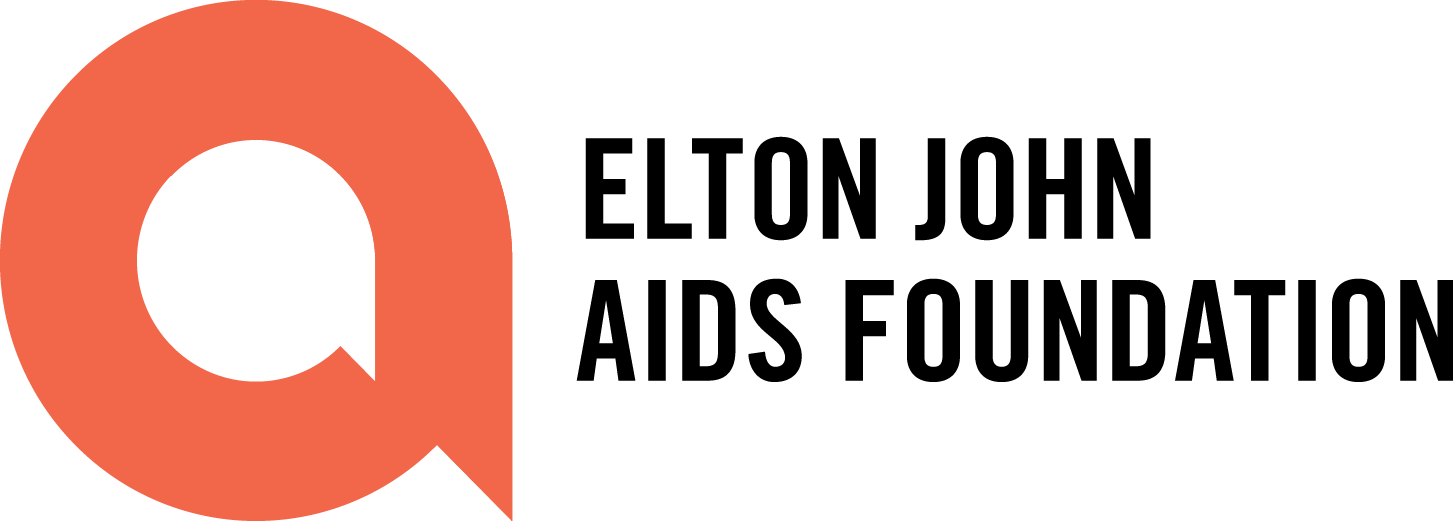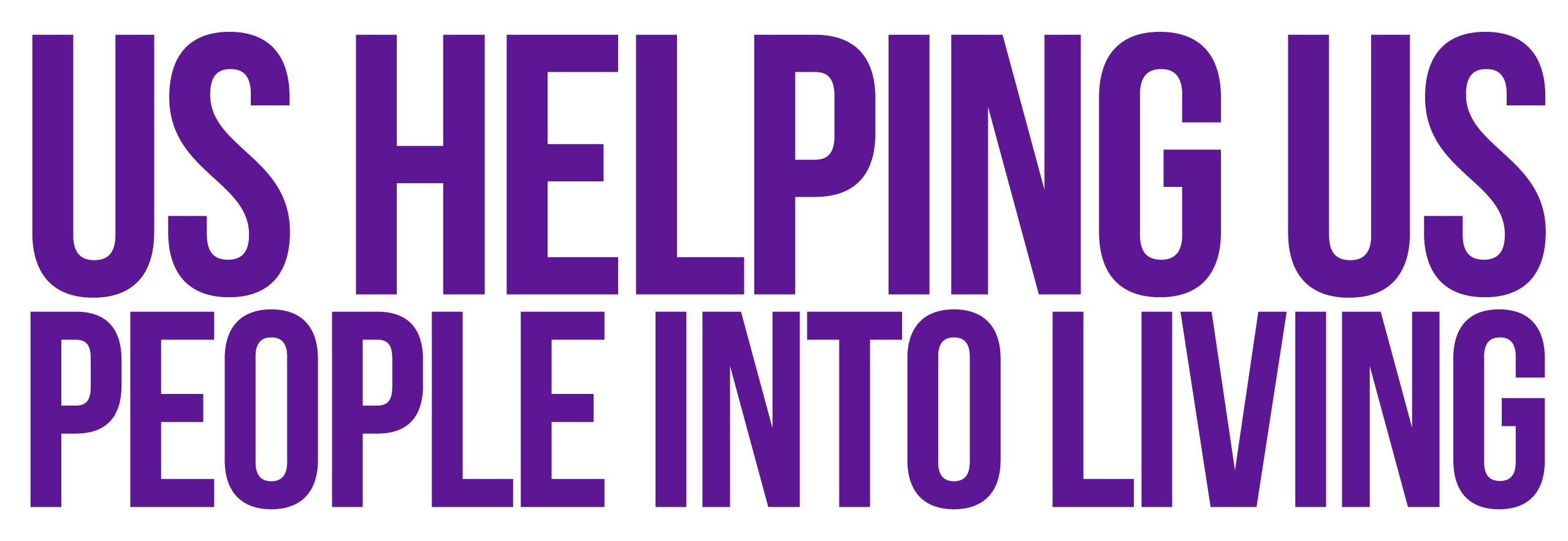Announced!
2026 U.S. Conference on HIV/AIDS
September 17-20, 2026
Hilton Anaheim, Anaheim, California
Aging with HIV
The 2025 U.S. Conference on HIV/AIDS will shine the light on people aging with HIV. It will be central to our program across plenaries, workshops, institutes, and other conference offerings, while also creating space for conversations about how aging with HIV uniquely affects each of us uniquely.
Our theme aims to honor people aging with HIV, examine their challenges, and learn from their living experiences. Our program will focus on the different groups living with HIV, including the pre-protease inhibitor generation, post-protease inhibitor survivors, and dandelions. Our conference program has been designed to honor and learn from their history, living experiences, challenges, as well as examine and discuss solutions.
*photo courtesy of Pexels
2025 USCHA Agenda
Wednesday, September 3, 2025
Pre-ConferencesThe below listed events are pre-conferences hosted by external organizers and require separate registration. These events are not included in the USCHA agenda or registration fee. Please contact the respective event organizer for questions. |
||
| 8:00am – 5:00pm | Pre-Conference: Healing, Hope, & Human Rights: Strengthening Faith-Based Responses to HIV & Aging Organizer: US HIV & AIDS Faith Coalition Location: Tulip, 2nd Floor Level/Mezzanine Foyer | Register |
| 8:00am - 5:00pm | Pre-Conference: Mentoring the Managers (MtM) Workshop Event: Stepping into Leadership: Managing for Growth and Impact in HIV Prevention Organizer: Population Health Division, San Francisco Department of Public Health Location: Union Station, Meeting Level 3 (M3) | Register |
| 8:00am - 5:00pm | Pre-Conference: Organization Development & Management Meeting (Invitation Only) Organizer: NMAC's The Center to End the HIV Epidemic Location: Gallaudet, Meeting Level 1 (M1) | Register |
| 8:30am – 4:30pm | Pre-Conference: Catalyzing Collaboration: Preparing Aging Providers for the HIV Landscape Organizer: The Training & Health Equity Collaborative Location: Courtyard Marriott, Shaw A Room | Register |
| 9:00am – 4:30pm | Pre-Conference: U.S. HIV Philanthropy Forum Organizer: FCAA (Funders Concerned About AIDS) Location: True Reformer Building, 12th and U St NW | Register |
| 2:00 pm – 6:00 pm | Registration | |
*photo courtesy of Pexels
Thursday, September 4, 2025
| 7:30 am – 5:00 pm | Registration Open |
| 8:00 am – 11:00 am | Institute Session 1 |
| 10:00 am – 5:00 pm | Exhibit Hall Open |
| 11:30 am – 1:30 pm | Opening Luncheon Plenary: Beyond Belief, ViiV Healthcare |
| 1:45 pm – 3:45 pm | Session 1 Workshops |
| 4:00 pm – 6:00 pm | Session 2 Workshops |
| 6:30 pm – 8:00 pm | Welcome Reception |
Friday, September 5, 2025
| Sign up below to watch today's plenary via livestream. | |
| 8:00 am – 5:00 pm | Registration Open |
| 8:00 am – 11:00 am | Institute Session 2 |
| 10:00 am – 5:00 pm | Exhibit Hall Open |
| 11:30 am – 1:30 pm | Luncheon Plenary: Survival and Legacy, NMAC Sign up to watch via livestream |
| 1:30 am – 2:00 pm | Poster Session |
| 2:00 pm – 4:00 pm | Session 3 Workshops |
| 4:15 pm – 6:15 pm | Session 4 Workshops |
| 6:30 pm – 7:30 pm | Affinity Sessions
|
Saturday, September 6, 2025
| 8:00 am – 3:00 pm | Registration Open |
| 9:00 am – 11:00 am | Session 5 Workshops |
| 10:00 am – 5:00 pm | Exhibit Hall Open |
| 11:30 am – 1:30 pm | Luncheon Plenary: Timeline of Innovation: Moments that Changed HIV, Gilead |
| 1:30 am – 2:00 pm | Poster Session |
| 2:00 pm – 4:00 pm | Session 6 Workshops |
| 4:15 pm – 6:15 pm | Affinity Session: Surviving Voices HIV Lifetime & Long-Term Survivors Documentary, 6:00pm – 8:00pm In 2025 the 10th chapter of "Surviving Voices", the National AIDS Memorial’s award-winning AIDS oral history and film series, honors HIV Lifetime and Long-Term Survivors - those who acquired HIV at birth or as young children and those who acquired the virus before the availability of effective treatment in the mid-1990s. It depicts their vulnerabilities and the stigma they were facing but also celebrates their individual strength, power, and resilience, and the importance of community. |
| 6:30 pm – 7:30 pm | Affinity Session: Sisterhood & Survival: Our Lifelong Legacy of Power and Perseverance Join us for an uplifting and empowering affinity session designed for women living long-term with HIV. This is a safe space to share our journeys, reflect on our resilience, and celebrate the strength we've built over time. Whether HIV has been a part of your journey for many years or your whole life, this space honors you. Your story, your voice, and your experience matter deeply. This space is open to all women living with HIV—those aging with it, those who’ve carried it for a lifetime, and everyone in between. |
| 8:00pm – 12:00am | Dance Party |
*photo courtesy of NMAC
Sunday, September 7, 2025
| Sign up below to watch today's plenary via livestream. | |
| 9:00 am – 11:00 am | Session 7 Workshops |
| 11:30 am – 1:30 pm | Sunday Luncheon Plenary: Workforce Resiliency and a Blueprint for 2029, NMAC Sign up to watch via livestream |
Sunday Plenary, Sunday, September 7, 2025
Ann Nesby
Two-time GRAMMY® Award-winning vocalist, songwriter, and actress Ann Nesby is widely celebrated as one of the greatest vocalists of our time.
Known for her powerhouse voice, soulful artistry, and magnetic stage presence, Nesby has built a career spanning more than three decades, inspiring audiences around the world with her music and performances.
Nesby first rose to prominence as the powerhouse lead singer of the GRAMMY® Award-winning ensemble Sounds of Blackness, giving voice to songs that became anthems for a generation.
Her solo career brought six additional GRAMMY® nominations and a catalog that bridges gospel, R&B, soul, and musical theatre, highlighting her versatility and artistry.
USCHA Pre-Conferences
The below listed events are pre-conferences hosted by external organizers and require separate registration. These events are not included in the USCHA agenda or registration fee. Please contact the respective event organizer for questions.
| 8:00am – 5:00pm | Healing, Hope, & Human Rights: Strengthening Faith-Based Responses to HIV & Aging Organizer: US HIV & AIDS Faith Coalition Location: Tulip, 2nd Floor Level/Mezzanine Foyer | Register |
| 8:00am - 5:00pm | Mentoring the Managers (MtM) Workshop Event: Stepping into Leadership: Managing for Growth and Impact in HIV Prevention Organizer: Population Health Division, San Francisco Department of Public Health Location: Union Station, Meeting Level 3 (M3) | Register |
| 8:00am - 5:00pm | Organization Development & Management Meeting (Invitation Only) Organizer: NMAC's The Center to End the HIV Epidemic Location: Gallaudet, Meeting Level 1 (M1) | Register |
| 8:30am – 4:30pm | Catalyzing Collaboration: Preparing Aging Providers for the HIV Landscape Organizer: The Training & Health Equity Collaborative Location: Courtyard Marriott, Shaw A Room | Register |
| 9:00am – 4:30pm | U.S. HIV Philanthropy Forum Organizer: FCAA (Funders Concerned About AIDS) Location: True Reformer Building, 12th and U St NW | Register |
2025 USCHA Tentative Workshops and Institutes Schedule
Thursday, September 4
Institute Session 1 (8:00am – 11:00am)
- “Yea, Though I Walk: Stories of Healing, Hope, and Holy Joy”
- AARP Insights: Unified Approaches to HIV, Aging, and Caregiving Needs
- Living, Thriving, and Demanding Better: Aging with HIV in a Shifting Political Climate
- “In Every Stage: Advancing Health Equity for Aging Trans Men Living with HIV”
- Curing Hepatitis C: National Strategy and Federal Leadership in Action
- More Than One Truth: A Gender Justice Call to Action
- Aging with HIV: Chronic Conditions Across the Life Cycle
- Becoming a Housing Advocate
- Our Native Stories From the Inside: Native Story Telling as Resilience + How to Use Voicethread to Add to Our Story
- Got to Get Up Early in the Morning: Funding the Gap in Service Delivery for Black Organizations
- HIV and the Law: How Aging Laws Harm People Living with HIV
- HIV Prevention’s Past, Present & Future: A Legacy in Motion
- Talking Death: A Trauma-Informed Approach to Facing Our Mortality
- IAS 2025, the 13th International AIDS Society Conference on HIV Science. A Treatment and Research Institute
Session 1 Workshops (1:45pm – 3:45pm)
- *It Takes a Village: A Community in Action – Sign up to watch via livestream
- *Breaking Barriers: Community-Based Care for TGNC Mental Health – Sign up to watch via livestream
- Aging with HIV and Your Pharmacist: More Years, More Medications
- “Using Faith a Spiritual Catalyst for Women aging with HIV”
- “Leveraging Digital Health to Close Gaps in HIV Prevention”
- Forever Undetectable: Harnessing U = U for Older Adults
- Where Did All of The Children Go?
- Unlearning Survival: Mental Health and the Burdened Woman
- The Guys Like Us Project/ Doing the Mattress Dance
- Exploring Reproductive Aging in Women Living with HIV
- HIV Wellness and the Impact of Ageism and Racism in Latino Immigrant Communities
- Resilience: Parenting an HIV-Positive Child During the Perinatal Epidemic
- Unlocking the Potential of Long-Acting Injectable Therapies
- Power, Prevention & Connection: The HIV 50+ Education Experience
- Straight Talk: Hearing Health and HIV
- Developing National Online Health Promotion Platforms for People age 50+ Living with HIV in the U.S
Session 2 Workshops (4:00pm – 6:00pm)
- *What Healthy Aging Looks Like: A Housing Model of Care – Sign up to watch via livestream
- *Rooted in Resistance: 30 Years of Healing and Syndemic Solutions – Sign up to watch via livestream
- Bridging Generations: Intergenerational Policy Advocacy for Adults Living with HIV
- Mental Health, Memory, and Medical Trauma: Healing for Lifetime Survivors
- Coalitions as Tools for Policy Change and HIV/Aging Justice
- Viral Load Monitoring Technologies: NIH Updates & Community Insights
- Grief is More Than Death and Dying: Navigating Non-Death Losses
- Trans for Trans Love: Navigating Pleasure, Status & Identity
- Native and Indigenous Workshop #1
- Sacred Transitions: Compassion and the Journey of End-of-Life Care
- Breaking the Silence: Healing Through Disclosure and Empowerment
- Linkage to Care Through Harm Reduction: Community-Led Solutions
Friday, September 5
Institute Session 2 (8:00am – 11:00am)
- “Sex Never Gets Old: HIV/STI Prevention for Older Adults
- Prepped to Serve: A Playbook for Implementing HIV Prevention Services in Community Pharmacies
- Clinical Guidelines and Recommendations for Meeting the Needs of an Aging Population with HIV
- Rapidly Adapting HIV Care amidst Radically Reshaped Public Health Infrastructure
- Navigating the Policy Web: HIV in a Complex Health System
- “Living in Visibility: Health, Resilience, and Equity for Aging Trans Women with HIV”
- Aging with HIV and the Importance of Housing
- Amplifying Public Health Infrastructure: Coalition-Building for Communities Aging with HIV
- Ask a Provider: U=U and More!
- From Law to Liberation: ADA, Community Organizing, and Funding Tools in the Fight Against HIV Criminalization
- Weathering the Storm: The Healing and Resilience of Lifetime Survivors
- The Hispanic/Latine Leadership Health Institute
- Still Here, Still Powerful: Black Women, HIV & Aging with Grace and Grit
Session 3 Workshops (2:00pm – 4:00pm)
- Innovative Strategies in Today’s Climate for Reaching, Retaining, and Reengaging PrEP Clients
- *Reclaiming Space: Aging, Identity, and HIV/AIDS in Latino Communities – Sign up to watch via livestream
- Rest in Unrest: A Faith Response to HIV in Today’s Socio-Political Climate
- Sexual Pleasures and Taboos in an Unstable Funding Environment
- Addressing the Opioid Use Disorder/HIV/Hepatitis C Syndemic Through Mobile Clinics
- Still Here- Community for Lesbians/Queer Women Aging with HIV
- Securing the Bag: Financial and Career Growth as Lifetime Survivor
- Syndemic Theory to Practice: Linking and Retaining People with HIV
- Intermediary Funders: Catalysts for Equitable Systems Change
- Ballroom Health Equity in Action
- Beauty & Wellness: Reimagining HIV Prevention Spaces for Black Women
- Lifestyle-Based Interventions for Prevention and Management of HIV-Associated Comorbidities
- The HIV/AIDS Nexus: Despair, Research, Hope, Movement
- Pivot to Power: Strength in the Collective
- Linkage in Action: PrEP, DoxyPEP, Telehealth, and Navigation
- Empowering the HIV Workforce: A Townhall on Capacity Building Assistance (CBA) Services
Session 4 Workshops (4:15pm – 6:15pm)
- *Feeling Knotty: Sexual Health Across the Lifespan – Sign up to watch via livestream
- The Pause and the Positive: Navigating Menopause with HIV
- Strategies to Address Medical Needs for People Aging with HIV
- Aging With Purpose: Cultivating Wellness at Every Stage
- Our Bodies, Our Desire: Trans Pleasure, Power, Healing, and Pride
- Wounds That Heal: Embracing Resilience, Honoring Lives, and Reclaiming Wholeness
- Aging with HIV: Process What’s Lost to Welcome What’s Next
- Expanding PrEP Access Through Pharmacist-Led Initiation
- Disclosure and Intimate Partner Violence – It is complicated !!!
- From Policy to Infrastructure, Exploring Integrating HIV and Aging Systems
- Facilitating Engagement Between Women and Providers About Sex and Pleasure
- Feeling Knotty: Sexual Health Across the Lifespan
- Aging While Black & LGBTQ+/SGL: Policy, Power, and Possibility
- Legacy, Leadership, and Leverage: Power of the National Pan-Hellenic Council
- The Generational Dynamics of Living with HIV
- Gilead Patient Ambassador Program: Journey Beyond HIV
Saturday, September 6
Session 5 Workshops (9:00am – 11:00am)
- Aging with Dignity: Building a Community-Led, Status-Neutral LAI ART Program
- Bridging the Gap: HIV Prevention and Treatment at the Intersections – Past, Present, and Future
- *Military Veteran Voices: Building HIV-Inclusive Communities Through Dialogue – Sign up to watch via livestream
- Centering Black Women in PrEP Access and HIV Prevention
- *HIV and Aging: Centering Disability Justice and Complex Chronic Illnesses – Sign up to watch via livestream
- Aging with HIV, Wellness Model for Black Heterosexual Cis Women
- Parenting While Positive: Navigating Fertility, Family Planning, and Fear
- Strengthening Collaborations Between Grassroots Organizations and Bigger Institutions
- Listen Up: How Music Artists Shape HIV Prevention & Storytelling
- Equity in Aging: Tailored HIV Care for Older Women
- Women Leading Change: Local Action, National Impact
- Native and Indigenous Workshop #2
- Understanding Perspectives of HIV Cure Trial Designs Which Include an Analytical Treatment Interruption (ATI)
- The HIV+ Aging Research Project (HARP-PS)
- ”Weathering” the Standards of Care
- Health Literacy in Practice: Serving Older Adults Living With HIV
- HIV and Aging: Understanding the Policy and Legal Landscape
Session 6 Workshops (2:00pm – 4:00pm)
- Community Mapping for Impact: Strengthening HIV Outreach with Aging Populations
- Getting to Zero, “There is Nothing for Us Without Us”!!!
- Outside. Inside: A Fresh Approach to Engage Southern Rural Communities
- Start-Stay-Return: An Innovative Approach for Continuous Engagement and Reengagement in HIV Care
- *Sankofa Rising: Honoring Legacy and Leadership of Black Aging Women – Sign up to watch via livestream
- Aging with Power: Addressing Menopause, Weight, HIV, and Bone Health
- Dandelions Movement: The Journey to Lifetime of Liberation
- Wisdom in the Body: Healing What Talk Therapy Can’t Reach
- Are Nursing Homes Prepared to Take Care of PWH?
- Innovative Mobile-Based Biomedical HIV Prevention/treatment for Asylum Seekers in NYC
- Straight Talk: Hearing Health and HIV
- Transforming Care for Adults Aging with HIV
- Sexual Pleasure, HIV & STI Prevention Across Generations
- Redemptive Masculinities: Exploring LGBTQIA+ Allyship among CisHet Men in Faith Spaces
- Taking It Into Our Own Hands: Policy Tools for Gay Men of Color in Today’s Political Climate
- Community Model: Addressing Employment Needs of People Living with HIV
- Saving Ourselves: Transgender Advocates Navigating HRT, PrEP and TaSP
- Ageism, HIV, and the Overlooked Impact of HIV Criminalization
Sunday, September 7
Session 7 Workshops (9:00am – 11:00am)
- *Long-term Intimate Relationships while Aging with HIV – Sign up to watch via livestream
- Are Nursing Homes Prepared to Take Care of PWH?
- Building Power: Aging, HIV, and Political Advocacy
- *The Power of Us: Wellness for Women Living and Aging with HIV – Sign up to watch via livestream
- ADAP Formulary Innovation: Serving the Aging HIV Community
- Disco to Digital: Race, Romance, Intergenerational, and Disclosure
- Prioritizing Long Term Mental Healthcare for Women Living with HIV – CANCELLED
- Sensual Survival: Reclaiming Pleasure and Power as Lifetime Survivors
- The Rising Tide of HIV Among Black Gay Aging Populations
- Smarter Sex: Understanding Anal Pleasure and Health for HIV Workers
- Laying the Foundation: Abolitionists Imagining a Brighter Future for PLAHIV
- NextGen Rising: Youth Voices Leading the Charge for HIV Equity
- Navigating Towards Language Justice: Strategies for Organizational Change, Leadership, and Leverage: Power of the National Pan-Hellenic Council
- The Challenges of Intersecting Co-morbidities Among Older Adults Living with HIV
Friday & Saturday, September 5 & 6
Poster Presentations (1:30pm-2:00pm)
- Blending Implementation Science Frameworks to Advance HIV Prevention Among Key Populations
- Efficacy of Housing Assistance Programs to Increase ART Medication Adherence
- Using Virtual Strengths-Based Case Management for Rural PLH Age 50+
- Realigning HIV Care Systems for an Aging Population
- Improving Depression Screening Protocols for Adults Aging with HIV
- Social Needs Among New York Women 40+ Living with HIV/AIDS
- Improving Screening and Integrated Care for Aging Adults with HIV
- Peer-Led Wellness Groups for Women Aging with HIV: Community-Based Intervention
- Assessments for Evaluating Health Risks in Adults Aging with HIV
- Reducing Stigma & Improving Comorbidity Screening in PLAWH using AI
- More Than HIV Positive: How ART Shapes Her Fertility Future
- Adapting employment-focused HIV prevention for Latino MSM in Florida
- Rebuilding the Forgotten: A Tailored, Human-Centered Approach Supporting “Aged-Out” Community
- Mapping Smoking Cessation Gaps for Aging People Living with HIV
- The status neutral model for older adults
- Age Related Trends in Long Acting Injectable Antiretroviral Therapy
- We’ve Always Been Here: Visibility and Leadership of Lifetime Survivors
- DoxyPEP Use and Sexual Satisfaction in Adults Over Age 50
- Life Beyond the Diagnosis: A Photovoice Study of Long-term Survivors
- Preferences for PrEP program attributes among aging cisgender Black women
- Criminalization and Syndemic Burden Among LGB Adults with HIV Risk
- HIV in Older Adults: Prevalence & Outcomes Across African Nations
- LOVE Initiative: Supporting African Diaspora Immigrant Elders’ Wellbeing
Workshops and Institutes by Track
Advancing Research and Treatment for Older Adults
As the population of people living with HIV ages, research and treatment must adapt to address their evolving needs. While advances in antiretroviral therapy (ART) have extended life expectancy, aging with HIV presents distinct challenges, including chronic inflammation, accelerated aging, multiple comorbidities, HIV multidrug resistance (MDR), and increased risks of drug interactions and side effects.
Posters
- Assessments for Evaluating Health Risks in Adults Aging with HIV
- Age Related Trends in Long Acting Injectable Antiretroviral Therapy
- HIV in Older Adults: Prevalence & Outcomes Across African Nations
Workshops
- Aging with HIV and Your Pharmacist: More Years, More Medications
- Trans Matriarchs in Community: Implications for Troubling Times
- What Do Longterm Survivors Want in an HIV Cure?
- Strategies to Address Medical Needs for People Aging with HIV
- Aging with Dignity: Building a Community-Led, Status-Neutral LAI ART Program
- Outside. Inside: A Fresh Approach to Engage Southern Rural Communities
- ADAP Formulary Innovation: Serving the Aging HIV Community
Aging with HIV – Political Determinants of Health
Political determinants such as funding priorities, policy enforcement, and legislative barriers can exacerbate disparities, while targeted policy interventions can drive meaningful change. This track examines how policies shape the health and well-being of adults 50+ living with or affected by HIV, highlighting the systemic factors that influence access to care, economic stability, housing, and social support.
Posters
- Efficacy of Housing Assistance Programs to Increase ART Medication Adherence
- Criminalization and Syndemic Burden Among LGB Adults with HIV Risk
Workshops
- The Guys Like Us Project/ Doing the Mattress Dance
- Bridging Generations: Intergenerational Policy Advocacy for Adults Living with HIV
- Coalitions as Tools for Policy Change and HIV/Aging Justice
- Aging While Black & LGBTQ+/SGL: Policy, Power, and Possibility
- HIV and Aging: Understanding the Policy and Legal Landscape
- Getting to Zero, “There is Nothing for Us Without Us”!!!
- Transforming Care for Adults Aging with HIV
- Building Power: Aging, HIV, and Political Advocacy
- Laying the Foundation: Abolitionists Imagining a Brighter Future for PLAHIV
Behavioral Health and Aging with HIV
Older adults living with HIV face unique challenges due to the virus and disease progression. These obstacles are exacerbated by stigma, social isolation, increased risk of mental health conditions, neurocognitive disorders, and the effects of long-term HIV treatment. This track covers key issues, including best practices for screening, treating and accessing mental health services to address neurocognitive conditions, mental health disorders, depression, anxiety, addiction, and community-based support.
Posters
- Using Virtual Strengths-Based Case Management for Rural PLH Age 50+
- Improving Depression Screening Protocols for Adults Aging with HIV
- Life Beyond the Diagnosis: A Photovoice Study of Long-term Survivors
Workshops
- Unlearning Survival: Mental Health and the Burdened Woman
- Grief is More Than Death and Dying: Navigating Non-Death Losses
- Wisdom in the Body: Healing What Talk Therapy Can’t Reach
- The Rising Tide of HIV Among Black Gay Aging Populations
Biomedical HIV Prevention
Biomedical HIV prevention has expanded options to stop the spread of the virus. While the conference focuses on aging with HIV, this track will focus on PrEP (Pre-Exposure Prophylaxis), PEP (Post Exposure Prophylaxis), Treatment as Prevention (TasP), U=U and START (Strategic Timing of Antiretroviral Treatment) allowing conference attendees to learn more about new HIV prevention methodologies, approaches and research.
Posters
- Blending Implementation Science Frameworks to Advance HIVPrevention Among Key Populations
- Preferences for PrEP Program Attributes Among Aging Cisgender Black Women
Workshops
- Forever Undetectable: Harnessing U = U for Older Adults
- Addressing the Opioid Use Disorder/HIV/Hepatitis C Syndemic Through Mobile Clinics
- Beauty & Wellness: Reimagining HIV Prevention Spaces for Black Women
- Expanding PrEP Access Through Pharmacist-Led Initiation
- Centering Black Women in PrEP Access and HIV Prevention
- Innovative Mobile-Based Biomedical HIV Prevention/Treatment for Asylum Seekers in NYC
- Unlocking the Potential of Long-Acting Injectable Therapies
- Innovation in PrEP: Strategies in Today’s Climate for Reaching, Retaining and Reengaging PrEP Clients
- Start-Stay-Return: An Innovative Approach for Continuous Engagement and Reengagement in HIV Care
Community Building
Community building plays a critical role in improving health outcomes, reducing isolation, and ensuring that aging individuals with HIV receive the support they need. Community-driven initiatives can empower people with HIV to help combat stigma, promote mental and physical well-being, and advocate for policies that address the unique challenges of aging with HIV. This track covers essential community-building issues, including dual stigma, aging-specific HIV programs, peer support networks, long-term survivors’ storytelling, long-time companions, community spaces, and engagement. Strong community networks and leadership are essential for improving the quality of life of older adults with HIV.
Posters
- Rebuilding the Forgotten: A Tailored, Human-Centered Approach Supporting “Aged-Out” Community
- LOVE Initiative: Supporting African Diaspora Immigrant Elders’ Wellbeing
Workshops
- It Takes a village: A Community in Action
- What Healthy Aging Looks Like: A Housing Model of Care
- Reclaiming Space: Aging, Identity, and HIV/AIDS in Latino Communities
- Ballroom Health Equity in Action
- Aging with HIV: Process What’s Lost to Welcome What’s Next
- Feeling Knotty: Sexual Health Across the Lifespan
- Legacy, Leadership, and Leverage: Power of the National Pan-Hellenic Council
- Military Veteran Voices: Building HIV-Inclusive Communities Through Dialogue
- Listen Up: How Music Artists Shape HIV Prevention & Storytelling
- Community Mapping for Impact: Strengthening HIV Outreach with Aging Populations
- Sankofa Rising: Honoring Legacy and Leadership of Black Aging Women
- Are Nursing Homes Prepared to Take Care of PWH?
- Navigating Towards Language Justice: Strategies for Organizational Change
- Pivot to Power: Strength in the Collective
Comorbidities, and Multiple Chronic Conditions of Those Aging with HIV
The focus of care has shifted from managing HIV as a life-threatening disease to addressing the complex health issues that come with aging. Older adults with HIV face a higher burden of comorbidities, often developing age-related conditions earlier and more severely than their HIV-negative peers. This shift underscores the need for integrated, multidisciplinary healthcare approaches that address both HIV management and aging-related health concerns. This track aims to address cardiovascular disease (CVD) and metabolic disorders, HAND and dementia, osteoporosis and bone health, kidney and liver disease, cancers, multiple chronic conditions, and secondary prevention.
Posters
- Improving Screening and Integrated Care for Aging Adults with HIV
- Reducing Stigma & Improving Comorbidity Screening in PLAWH Using AI
- Mapping Smoking Cessation Gaps for Aging People Living with HIV
Workshops
- Breaking Barriers: Community-Based Care for TGNC Mental Health
- Rooted in Resistance: 30 Years of Healing and Syndemic Solutions
- Aging With Purpose: Cultivating Wellness at Every Stage
- HIV and Aging: Centering Disability Justice and Complex Chronic Illnesses
- The Power of Us: Wellness for Women Living and Aging with HIV
Dandelions and Lifetime Survivors
The intersection of aging and HIV highlights a unique and often overlooked population: individuals who were born with HIV and are now aging into adulthood and beyond. Advances in antiretroviral therapy (ART) have allowed many individuals born with HIV to live well into their 30s, 40s, and beyond, presenting new challenges in healthcare, mental health, and social support systems.
Posters
- More Than HIV Positive: How ART Shapes Her Fertility Future
- We’ve Always Been Here: Visibility and Leadership of Lifetime Survivors
Workshops
- Where Did All of the Children Go?
- Mental Health, Memory, and Medical Trauma: Healing for Lifetime Survivors
- Securing the Bag: Financial and Career Growth as Lifetime Survivor
- Weathering the Storm: The Healing and Resilience of Lifetime Survivors
- Parenting While Positive: Navigating Fertility, Family Planning, and Fear
- Dandelions Movement: The Journey to Lifetime of Liberation
- Sensual Survival: Reclaiming Pleasure and Power as Lifetime Survivors
- The Generational Dynamics of Living with HIV
- Breaking the Silence: Healing Through Disclosure and Empowerment
- Resilience: Parenting an HIV-Positive Child During the Perinatal Epidemic
The Science of Sexuality and Pleasure
A fulfilling sex life with HIV matters. A focus on pleasure may not only guard against negative outcomes, but it may also contribute to positive outcomes across multiple dimensions of health. For the last four decades, sex has traditionally been a balancing act, mixing pleasure with risk of HIV and other STIs. However, biomedical medical treatment has changed things. This track focuses on sexual health and wellness.
Posters
- DoxyPEP Use and Sexual Satisfaction in Adults Over Age 50
Workshops
- Trans for Trans Love: Navigating Pleasure, Status & Identity
- Sexual Pleasure, HIV & STI Prevention Across Generations
- Sexual Pleasures and Taboos in an Unstable Funding Environment
- Our Bodies, Our Desire: Trans Pleasure, Power, Healing, and Pride
- Facilitating Engagement Between Women and Providers About Sex and Pleasure
- Pleasure with Purpose: Owning Desire, Identity, and Joy
- Disco to Digital: Race, Romance, Intergenerational, and Disclosure
- Smarter Sex: Understanding Anal Pleasure and Health for HIV Workers
Systems Change and Workforce Development
Achieving sustainable health for people aging with HIV requires systemic transformation that is patient-centered and a well-equipped workforce capable of addressing evolving needs. This track explores strategies for systems change, including patient-centered approaches, policy reforms, program integration and innovation, cross-sector collaboration, and capacity-building efforts that enhance service delivery for older adults living with HIV. Workforce development is critical to ensuring providers are trained in age-inclusive, culturally responsive, and trauma-responsive care.
Posters
- Realigning HIV Care Systems for an Aging Population
- Adapting Employment-Focused HIV Prevention for Latino MSM in Florida
- The Status Neutral Model for Older Adults
Workshops
- Nature’s Blueprint: Systems Thinking for Aging with HIV
- ”Weathering” the Standards of Care
- Syndemic Theory to Practice: Linking and Retaining People with HIV
- Intermediary Funders: Catalysts for Equitable Systems Change
- Disclosure and Intimate Partner Violence – It is Complicated!!!
- Strengthening Collaborations Between Grassroots Organizations and Bigger Institutions
- Ageism, HIV, and the Overlooked Impact of HIV Criminalization
- Are Nursing Homes Prepared to Take Care of PWH?
- Health Literacy in Practice: Serving Older Adults Living with HIV
Women Aging with HIV
For women aging with HIV, there is a major gap in the understanding of how HIV will affect their lives, and approaches to optimal care are not clear. Comorbidities (infectious and non-infectious) related to HIV or aging are not a unique concern for older women, but the approach to care and the understanding of the disease process may be influenced by sex/gender and race/ethnicity and thus there are some unique care and treatment needs that should be considered as women with HIV age. The care of older women with HIV must integrate biomedical, behavioral, and social science interventions. Our challenge is navigating a fragmented system or creating a model of care with a tailored approach for older HIV-positive women to move between a primary care provider, a gynecologist, and several specialists (HIV/infectious disease, cardiologist, neurologist, nephrologist, and endocrinologist, to name a few) for their medical needs.
NMAC’s Commitment to Women at USCHA 2025
At this year’s United States Conference on HIV/AIDS (USCHA), NMAC reaffirms its unwavering commitment to women—especially those aging with HIV—through a dynamic slate of workshops and institutes tailored to their unique experiences. With the 2025 theme “Aging with HIV,” the conference highlights the voices, resilience, and health needs of women navigating HIV across the lifespan.
From sessions on comorbidities and chronic conditions to institutes focused on behavioral health, sexuality, and systems change, NMAC ensures women are not only represented but centered in the national dialogue. These offerings reflect NMAC’s long-standing dedication to equity, empowerment, and community-driven solutions for women living with HIV.
Posters
- Social Needs Among New York Women 40+ Living with HIV/AIDS
- Peer-Led Wellness Groups for Women Aging with HIV: Community-Based Intervention
Workshops
- “Using Faith a Spiritual Catalyst for Women aging with HIV”
- Exploring Reproductive Aging in Women Living with HIV
- From Silence to Strength: Latinas and Black Women with HIV
- Still Here- Community for Lesbians/Queer Women Aging with HIV
- The Pause and the Positive: Navigating Menopause with HIV
- Aging with HIV, Wellness Model for Black Heterosexual Cis Women
- Equity in Aging: Tailored HIV Care for Older Women
- Aging with Power: Addressing Menopause, Weight, HIV, and Bone Health
- Prioritizing Long Term Mental Healthcare for Women Living with HIV – CANCELLED
Other Events
The Legal Clinic
The Legal Clinic at USCHA will provide attendees with free, general legal guidance on issues impacting their advocacy and community work. Legal professionals will be available to offer support on civil rights, immigration, LGBTQ+ protections, and other key areas. While not a substitute for formal legal representation, this clinic will serve as a resource to help individuals and organizations navigate legal challenges and connect with further support as needed.
Mental Health Clinic
NMAC’s Coalition for Justice and Equality Across Movements is bringing the Mental Health Clinic to USCHA! The conference can be overwhelming, and sometimes, you just need somebody to talk to. We’re bringing experienced mental health professionals Hakim Asadi and Caprice Carthans to USCHA to be listening ears.
Contact
For information, updates, and questions about NMAC’s 2025 US Conference on HIV/AIDS, please email Conferences@NMAC.org



